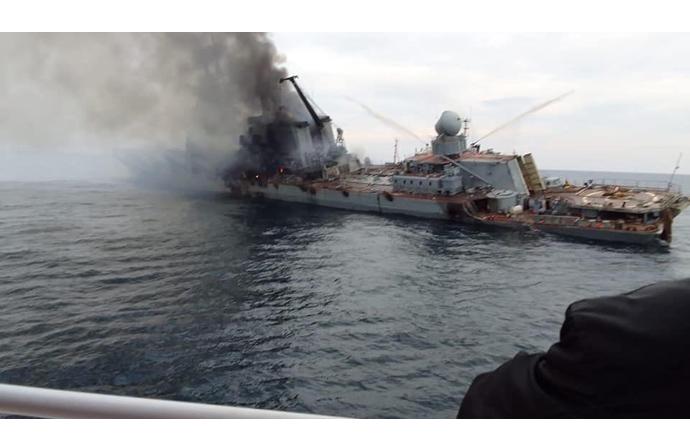British Defense Minister declares Russia's "functional defeat" in the Black Sea
Ukraine's naval successes 'as important' as liberation of Kharkiv region a year ago, says Hippe

With massive strikes on Crimea, Sevastopol and even the base in Novorossiysk, Ukrainian forces have forced Russian Navy ships in the Black Sea to "scatter to ports from which they cannot influence Ukraine."
Source. This was stated by British Defense Secretary James Hippey at a security conference in Warsaw, The Guardian reports.
He described the situation as a "functional defeat" of the Black Sea Fleet. Although Ukraine's ground counteroffensive is difficult, its naval successes are "as important" as the liberation of the Kharkiv region a year ago, Hippy said.
At the beginning of the war, the Russian Black Sea Fleet had 12 times as many ships as the Ukrainian one. Ukraine even had to sink its flagship frigate, which was being repaired in Mykolaiv, to prevent it from falling into enemy hands.
Since then, Russia has lost its flagship cruiser, the Moskva, which was sunk in April 2022 by a Ukrainian Neptune missile.
And in recent months, the Ukrainian armed forces have used missiles and drones to sink and damage several Russian warships in Sevastopol and Novorossiysk, including the Rostov-on-Don submarine, one of six in the Black Sea Fleet.
Russia cannot replenish the losses, the newspaper writes, as Turkey in February 2022 banned the passage to the Black Sea through the Bosporus and Dardanelles straits for ships from countries at war.
Operations in the Black Sea are carried out not only by the Ukrainian Navy, but also by the Air Force and special forces of the Defense Intelligence Agency and the Security Service of Ukraine, The Wall Street Journal wrote. This allowed, in particular, to significantly secure the northwestern region of the Black Sea and establish a new grain corridor.
New missiles, such as the British Storm Shadow and French SCALP, as well as the surface-to-surface version of the Neptune missile, along with new intelligence, have brought about "big changes," a source in the General Staff of the Armed Forces of Ukraine told The Economist: "As soon as there is a target to hit, we do it."
At the end of September, Ukraine launched a missile attack on the naval headquarters in Sevastopol.
Background. As a reminder, British intelligence reported that Russia is losing its ability to blockade Ukraine's ports after strikes on the Black Sea Fleet.
If you have read this article to the end, we hope that means it was useful for you.
We work to ensure that our journalistic and analytical work is of high quality, and we strive to perform it as competently as possible. This also requires financial independence. Support us for only UAH 196 per month.
Become a Mind subscriber for just USD 5 per month and support the development of independent business journalism!
You can unsubscribe at any time in your LIQPAY account or by sending us an email: [email protected]



